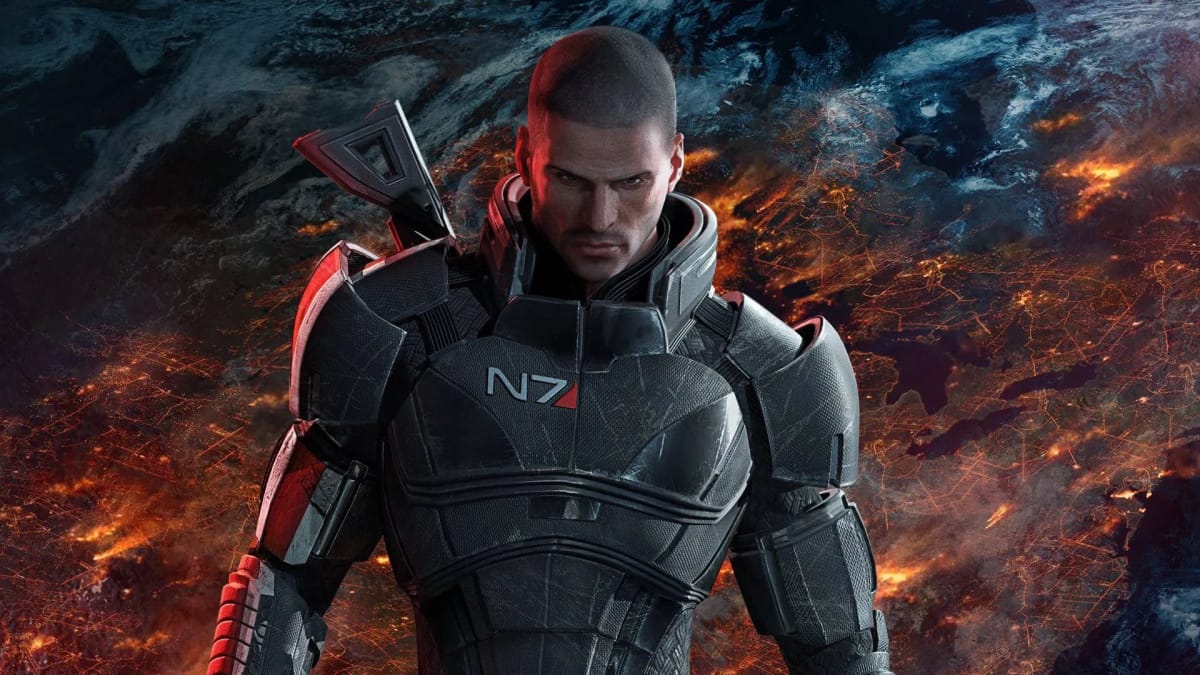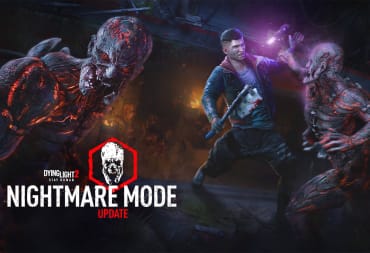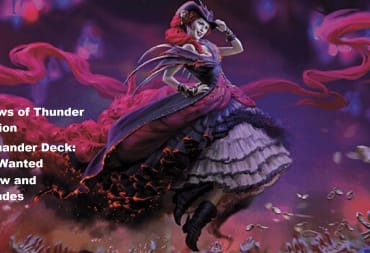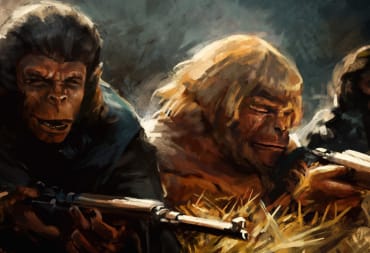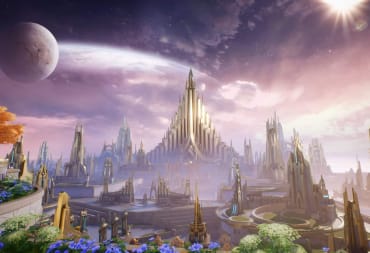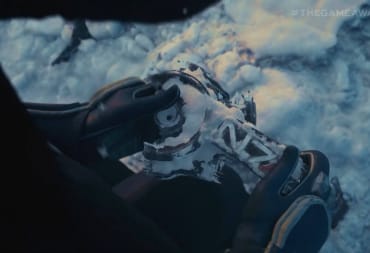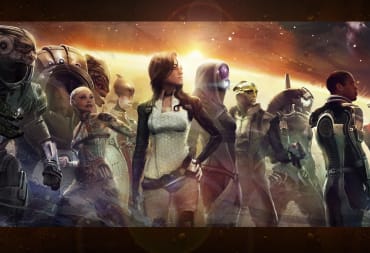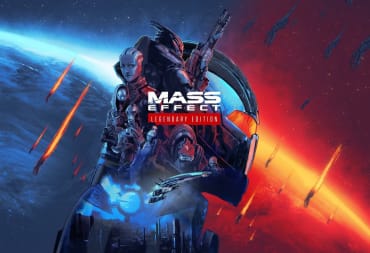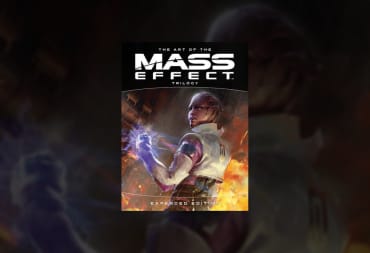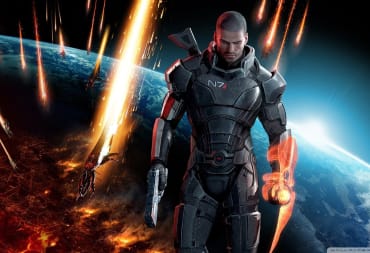The Mass Effect trilogy has constantly been argued as one of the most important game franchises in the past decade. Its strengths as a cinematic role-playing experience, buoyed by strong character writing and, in my view, a rich contextual narrative are often discussed (or dismissed) but rarely explored. What separates Mass Effect from other franchises is the thematic elements of the game, those that work on a dramatic and philosophical level. This richness in depth makes the game epic but perhaps more remarkably, relatable in the scope of its themes.
This is a four-part series looking at Mass Effect characters Garrus, Mordin, Legion, and Commander Shepard. It was a part of our Character Select series and published in 2018, but has been condensed into this article, which includes all four parts and republished.
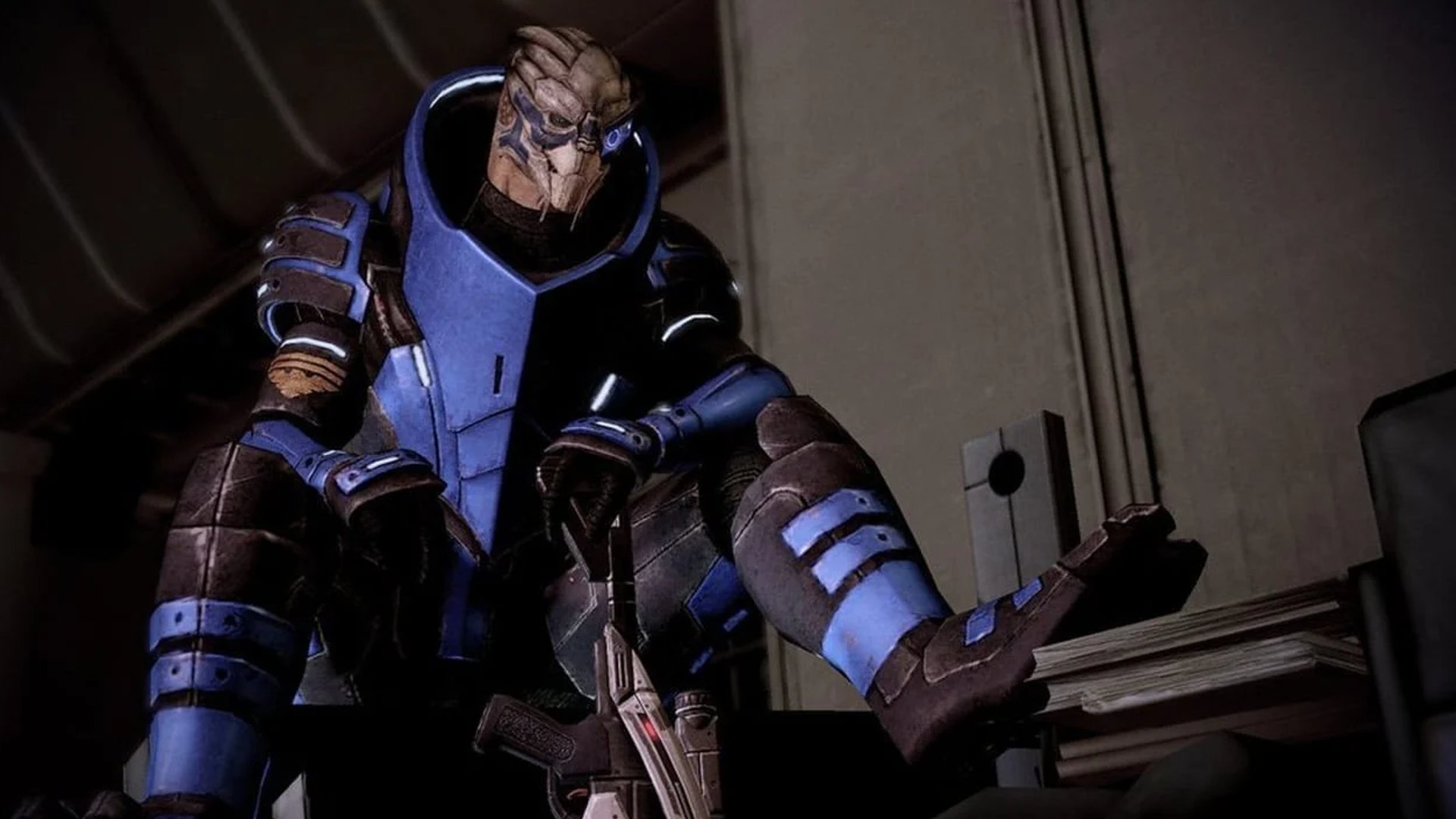
Garrus
“And there will be signs in sun and moon and stars, and on the earth distress of nations in perplexity because of the roaring of the sea and the waves, people fainting with fear and with foreboding of what is coming on the world. For the powers of the heavens will be shaken. And then they will see the Son of Man coming in a cloud with power and great glory. Now when these things begin to take place, straighten up and raise your heads, because your redemption is drawing near.”
- Luke 21: 25-28
Of course, the Mass Effect series is not without critics, but one of the better aspects of the trilogy is how open it is with its context. Often people view the games as the sum of its parts, an epic space opera where Commander Shepard is the stand-in for the player's own power fantasy. However, another reading of Mass Effect that I find much more complex and intellectually rewarding is through the lens of philosophical theology. The trilogy is filled with biblical references and themes, and many of the game’s own choices, right down to the ending itself, correspond to complex issues of individuality, destiny, and the role of God in determining our free will.
While I am not religious by any means, I did grow up with the Catholic church. The pageantry that comes with the Church, the hope and strength given through prayer and faith, is still a fascinating aspect that, if viewed a certain way, transforms Commander Shepard into one of three distinct heroes: a redeemer, an Übermensch, or a messiah.
To understand this though, we need to explore not only Commander Shepard as a character but members of the series' cast that help embody these three roles. To start with, we should perhaps go with one of the most popular characters in the series, everyone’s favorite Turian Garrus Vakarian. Garrus is arguably the most developed out of the squad mates in the franchise, with his progression from the first to the third game being, if you really look for it, both remarkable and often harrowing through his ultimate role as the redeemer searching for control.
Garrus starts Mass Effect as a C-SEC officer, a kind of detective for the major metropolis space station known as the Citadel. You first meet him arguing with a superior about the rogue specter Saren, angry with the fact that red tape and bureaucratic practice are holding him back from busting Saren for heinous crimes. Garrus is later seen dealing with hired thugs assaulting a doctor on the Citadel, and from here we can see the inklings of his morals: he is quick to fire on these men even when they take a hostage, showing that he has a strong sense of morality but is willing to put others in jeopardy and outright break the rules to uphold this sense of true justice. He took a risk that, depending on your own dialogue choices, is either praised or scolded by Shepard.
From then on Garrus is a permanent squad member. His actions in the first game are mostly reflective of your conversations with the player, often with him being courteous and compassionate towards the innocent and fellow squad mates but ruthless towards enemies and anyone trying to go above the law. From speaking to him you learn about his father, a fellow C-SEC officer who had a by-the-books attitude, and the pressures of following in his footsteps, sometimes by force over his own personal choice.
Garrus often states that he would enjoy living with no rules or restrictions, and that he would bring more criminals to justice without the bureaucracy blocking him. In this regard, many of Garrus’ cohorts see him as naive about the world around him. His superiors at C-SEC say he tries to do the right thing but often approaches problems poorly. He is quick to act in extreme situations, not thinking about the consequences or his own well-being when pursuing an enemy. Even Urdnot Wrex, a ruthless Krogan mercenary, goes as far as to berate Garrus for this quality.
It is these qualities that set up Garrus as a flawed character in the sense of his own pride and adherence towards justice at any cost. One issue Commander Shepard can resolve for him is his failure to bring an escaped criminal to justice. Shepard is given the option to track down an organ thief named Dr. Saleon. From this, Garrus can learn several things, depending on dialogue choices and whether mercy or justice was given to Saleon. If given the option to be spared, Dr. Saleon would run and be shot down, but the wisdom imparted by Shepard is that their response matters more. If killed outright, it would impress Garrus more in the short term—that evil can be squashed if you are just and decisive.
This black-and-white objectivity is an aspect of Garrus’ initial characterization, which he heavily adheres to. In most sections of dialogue, we see him often complain about the problems with C-SEC and his own desires for freedom over the law. Like many anti-heroes before him, Garrus takes matters into his own hands regardless of how people perceive him and the consequences his actions may have. The problem ultimately is how such actions lead to unintended consequences.
Mass Effect 2 sees Garrus at his low point, taking the mantle of "Archangel" and dispensing vigilante justice in the image of Commander Shepard in the crime-ridden asteroid of Omega. A running theme with Garrus is how he functions as an apprentice towards Shepard, often seeking advice from Shepard constantly in the first game. As Archangel, Garrus becomes an open protector akin to the role of the Abrahamic Archangel of Michael, the protector and leader of God’s army against the Devil in the Book of Revelation.
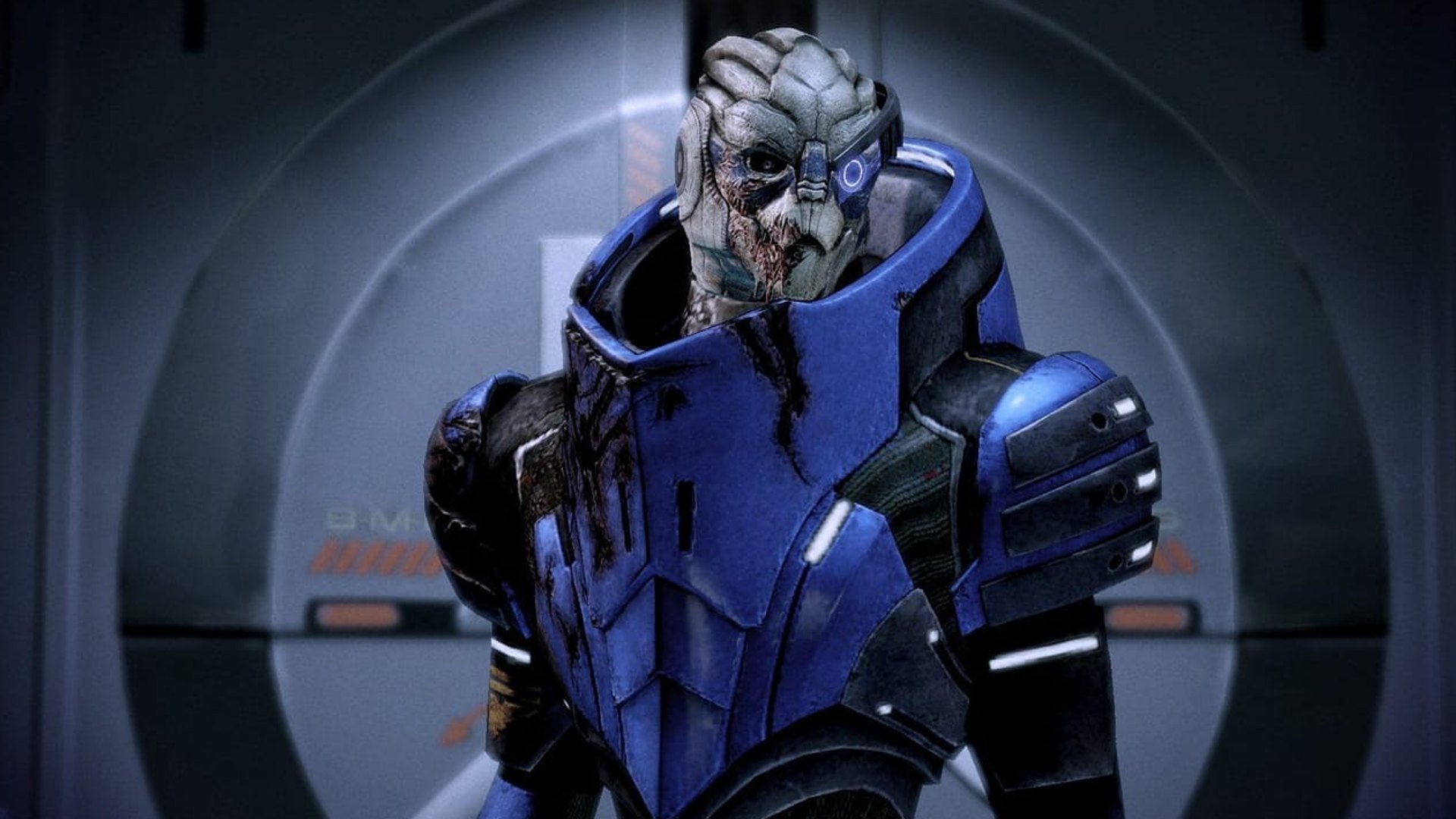
Molding himself based upon Shepard’s teaching goes beyond just the surface-level connection to biblical themes for Garrus. His new title as Archangel also bestows the responsibility of his own choices, and the parallels of Garrus as the protector waging war against evil are uncanny in the second game. He goes so far that he angers the criminals of Omega to the point of them allying together to kill him. He sacrifices everything for his pursuit of justice, from his squad to his morals, to even becoming scarred in the conflict with his crusade.
This is where the arc of redemption comes in for Garrus. His entire theme in Mass Effect 2 is about taking revenge against a member of his own team named Sidonis. He is a Judas, a betrayer who sold out Garrus and his squad of twelve for his own benefit. Garrus bears the scars of this betrayal, and for him the action that must be taken is clear: to demand justice from Sidonis.
Mass Effect 3 has Garrus in a fixed position, but the lessons learned in Mass Effect 2 play a role in how he comes to his redemption. The option of killing Sidonis is seductive and maybe appropriate, depending on the pushings and actions of Shepard. Sparing Sidonis, however, offers a moral quandary that conflicts with the naive sense of justice that Garrus has. Garrus’ world is black and white; everyone has a choice to be good or evil. What is foreign to him is how anyone can be both while seeking their own redemption, as Sidonis explains if given the chance.
As we see the scene with Sidonis play out, Garrus has a pained expression in his eyes when Sidonis admits he struggles to live. Garrus clearly laments the sleepless nights that haunt him over the death of his team as much as Sidonis. If Shepard convinces Sidonis that death is his redemption, Sidonis thanks Shepard as both he and Garrus share kinship once more, admitting they both struggle with their choices before Garrus pulls the trigger
Garrus is ultimately led to redemption, not necessarily for himself. It is Garrus who becomes the arbiter of redemption, choosing to kill or spare Sidonis in the end. Garrus can see Sidonis wishes to atone in those moments, so the lesson that Shepard imparts on Garrus is that some sinners can be redeemed if we choose not to pursue vengeance. Everyone has a choice, why not Sidonis too?
Garrus can become the redeemer in his endings, but it is mostly for Sidonis over himself. It is only in the full paragon outcome do we see Garrus find his own redemption, but this, in turn, coincides with Shepard's own fate. Is redemption, when guided by external voices, a choice? Shepard's involvement with Garrus and Sidonis can be interpreted in many ways from a theological framework, a condemnation or reinforcement of the themes of salvation, free will, and determinism. This ties specifically with the actions of Shepard, who ultimately makes choices for Garrus, robbing him of true free will in his loyalty mission.
Garrus’ sense of justice is deepened regardless of his actions, overcoming his self-doubt that was hinted at throughout the game. The renegade options see Garrus closer to his status as an Archangel for Shepard, who later exercises the "ruthless calculus" on the war with the Reapers. Garrus learns to make the tough choices that send millions to die, again echoing Shepard on hardcore renegade story paths.
The paragon option provides a more optimistic view for Garrus, but one is still steeled for the fight ahead. His role as the Archangel is still present but has been softened somewhat to further reflect the teachings of his mentor. He becomes one who worries about the wear and tear the Reapers have on him, the sacrifices of the war weighing just as heavily as the bodies rise.
Garrus is pigeonholed into a specific role in Mass Effect 3 as the confidant to Shepard, the culmination of his arc being the student surpassing the mentor through their example. The teacher-student dynamic is another typical aspect of storytelling. We have seen it in any movie, game, or novel with the mentor’s sage advice for the eager young hero, and eventually, the teacher would have the student surpass them, either through the conquering of their enemies or finding the inner strength they had all along.
This Joseph Campbell trope of mythtelling is plainly obvious in Garrus’ relationship with Shepard. The resolution of Garrus’ story arc is one of confidence in his role, in learning that his own self is redeemed through the tutelage of Shepard. His final moments reflect this, him finally finding a center to view Shepard as more than a teacher, but a closer friend who has guided him (and in some playthroughs, a romantic partner) down a worthy path.
Garrus, more than any other character though, is defined by his need for control of the world to combat its sins. His frustrations with bureaucracy, his desire to make the world right through justice, however objective it may be, is morally ambiguous at best and, depending on the context of the choices made, dangerous to those deemed unworthy. Garrus provides redemption in his choices, but that redemption is through a vengeful or sorrowful lens often for others over himself. In the end, Garrus is mostly defined by the actions of Shepard, and while he grows into the leader who exemplifies the Archangel namesake in Mass Effect 3, his actions are ultimately guided to that point.
The arc Garrus goes through works on many levels due to its context. In the game, it is a story path seeping in character growth for sure, but philosophically, it is an arc that ultimately runs parallel to the morality of Shepard, giving weight to the player's own decisions. Garrus becomes Shepard, and Shepard sees in Garrus an extension of their own will. There is little to discuss in Mass Effect 3 due to how his character arc peaks in the 2nd game, though what is there is telling; Garrus has become the right hand of Shepard, Shepard's own personal Archangel thanks, in part, to Shepard's actions.
The next character we need to discuss, however, provides another perspective for the player; one that is about finding meaning for themselves over the forces of outsiders. As flawed as Garrus is, the more individual we become, the less we rely on the guided hands of gods and angels...
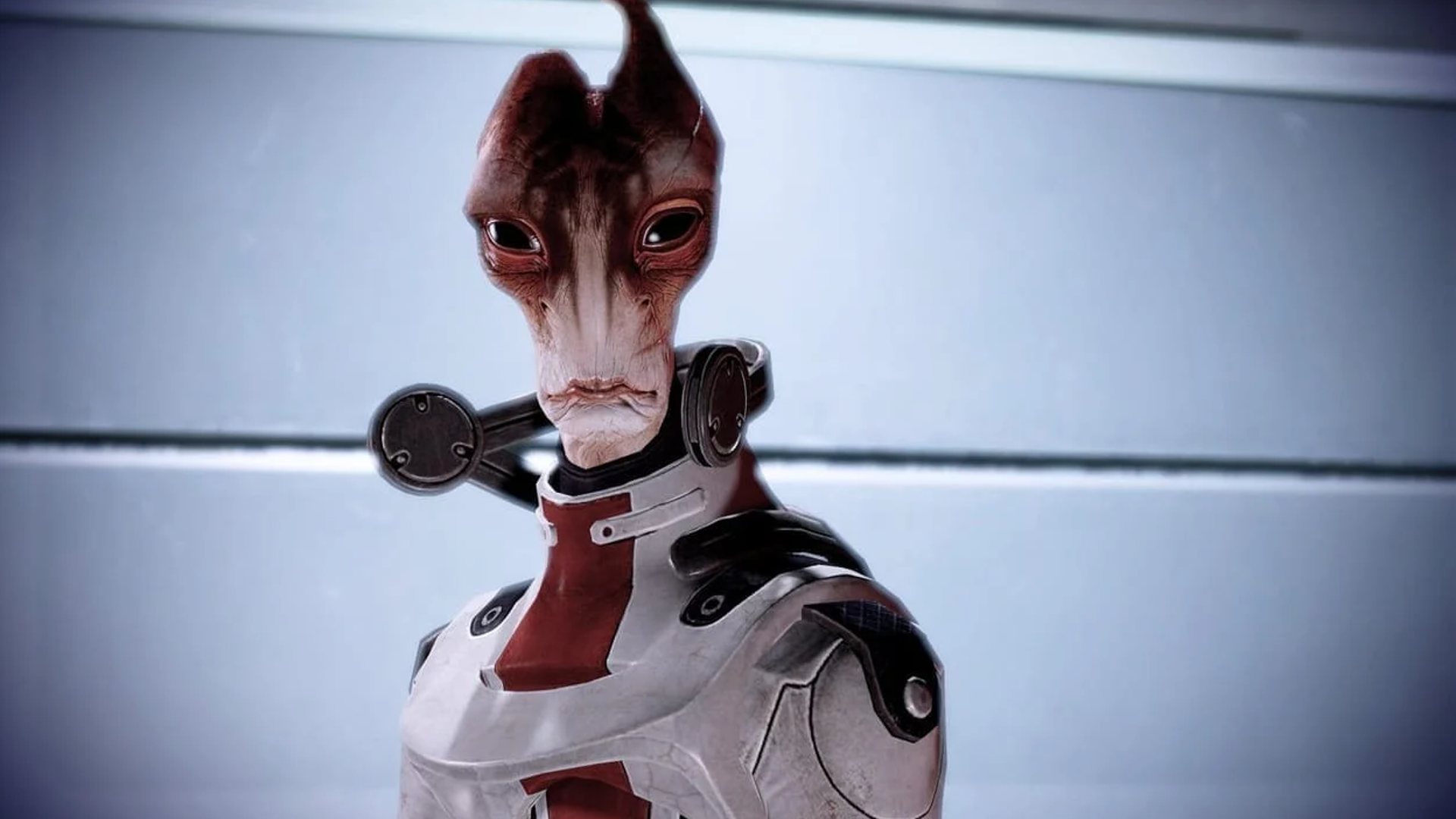
Mordin
God is dead. God remains dead. And we have killed him. How shall we comfort ourselves, the murderers of all murderers? What was holiest and mightiest of all that the world has yet owned has bled to death under our knives: who will wipe this blood off us? What water is there for us to clean ourselves? What festivals of atonement, what sacred games shall we have to invent? Is not the greatness of this deed too great for us? Must we ourselves not become gods simply to appear worthy of it?—Friedrich Nietzsche, The Gay Science
When discussing the biblical themes of Mass Effect, it is important to involve philosophy in the conversation. Philosophy serves as the perfect exercise to challenge our perceptions of the world. Theology, being the study of religious texts and religious philosophy, is just one of many lenses that we can have when exploring these ideas.
I bring this up because Mass Effect, while it leans heavily into biblical themes, also provides an opposing view that rejects aspects of theology such as destiny, fate, and predetermination. Much of this is baked into the game's design; as an RPG, it allows players to tackle difficult choices on the grounds of logic, morality, and personal ethics. One character helps in emphasizing this by being an agent of independent thought despite input by the player - the Salarian scientist Dr. Mordin Solus.
Mordin as a character is a home run in terms of writing and appearance. With an aged, wrinkly face and rapid line delivery, Mordin stands out thanks to the memorable actions that allow him to be both comedic and sympathetic through dialogue. The typical scientist, Mordin is a staunch believer of Machiavellian principles of the end justifying the means, a trait that he shares with Garrus to an extent.
Where Mordin differs, however, is the use of science to guide his actions over belief. His logic is cold and pragmatic, devoid of emotional attachment. The bigger picture matters more to Mordin, and in turn, drives his actions over leaps of faith.
A common trope in science fiction is the use of logic to overcome challenges. Harder science fiction is meticulous in creating a coherent logic to justify actions, and, often, the theme of science gone awry is ever present as an obstacle to overcome. Mordin fits into this trope as not only a scientist and doctor but a character who provides an important lesson that contrasts with the rest of the cast. Mordin is the Übermensch, the pinnacle of individualism and humankind’s mastery of the world.
The Übermensch, the "superhuman" goal of humanity, refers to the philosophy of Friedrich Nietzsche. It is a philosophy born out of the Enlightenment, where we saw the widespread rejection of Medieval values and thinking, and reason and modern science became popular over faith and convictions of our will. Nietzsche’s famous declaration that “God is Dead” refers to the weakening belief in divinity thanks to the Enlightenment, and the rise of the Übermensch in God's place thanks to a rise of nihilism, a belief that life ultimately holds no intrinsic value.
Consider what Mordin does in Mass Effect 2. His role in the game is to be the counterfoil to the Krogans, a race of war-like aliens whose culture was decimated by a fertility plague known as the Genophage. Before the Mass Effect series began, an event known as the Krogan Rebellions occurred in the galaxy. Mordin's race, the Salarians, developed the Genophage, a biological weapon that affects the Krogan birth rate. Basically, the lack of successful births made the Krogan a dying race, ending the rebellions and causing fertile females to become prized commodities out of survival.
During the events of Mass Effect 2, it was revealed that the Krogans were beginning to develop an immunity to the initial Genophage. A Salarian special task group, which Mordin was a member of, was tasked to tweak the Genophage, supposedly to keep the Krogan population at a stable, pre-industrial level. Creating a virus that would do so, however, skirts the ethical boundaries of science. In participating in such a feat, Mordin justifies the Genophage as a necessary evil, a peaceful solution to a problem that could quickly turn violent if it was not implemented. The bigger picture deems this the best outcome.
Following reason and logic, Mordin embodies Enlightenment idealism, faith in science, and the self over blind faith and emotion. Mordin played God, effectively "killing God" in the process by putting the lives of an entire species into his hands and deeming them of being less valuable. On many levels, this affects Mordin beyond what he expected, as he wrestles with the implications of his actions through spiritual soul-searching.
Most of this information comes to light during the loyalty mission for Mordin. He receives information that a former student and colleague who worked on the Genophage, Maelon, has been kidnapped by a clan of Krogan. Upon arriving at the location where Maelon is being held, Mordin, Shepard, and company discover a hospital where it becomes clear that there is research being done to cure the Genophage. Throughout the mission in the hospital, we see Mordin and Shepard act out in an existential dialogue, a sort of philosophical discussion about the ethics of science and the justification of a biological weapon.
From a superficial view, the entire mission goes through several points about scientific ethics and is honestly very complex in its answer in the end. One of the main points to remember is that Mordin, as a scientist, adamantly objects to those he calls “brute force researchers,” who perform on live test subjects despite the likely loss of life that would occur, which is somewhat ironic because of his own Machiavellian principles. Even though he helped in modifying a biological weapon, he maintains it was done ethically and logically, thus making it, to him at least, a rational and justified use of science to solve a problem.
On the philosophical level, it is Mordin coming to grips with his obsessive desire to rectify his actions. Mordin doesn’t regret the work of the Genophage at first, adhering fully to the Übermensch mantra that he is fully in control despite his soul-searching. Yet we see Mordin disturbed, right down to the ethical quandary of the research created by Maelon: do you, and by extension Shepard, save the data despite its origins and the blood spilled over its creation?
Mordin's intentions, in the end, are to use science for a better future. What he faces are ethically difficult challenges thanks to his rationalization of them being necessary. This is where the other half of the Übermensch mentality comes in. According to Nietzsche, if the Übermensch acts to create new values within the moral vacuum of nihilism, there is nothing that this creative act would not justify. To put it another way, an Übermensch can create their own reality based upon their own value - or the values of others.
Nihilism, of course, is the full rejection of the "meaning of life" in the broadest sense. This conflicts with biblical themes heavily, arguing that Catholic theology serves no purpose other than being an antiquated sensibility towards the inadequacies of a "rational" world. The point of the Übermensch is to effectively create that meaning for themselves without a guiding hand. Life had no meaning to Mordin, only science. Mordin's view of life is one based primarily on logic, on trusting that life follows a specific pattern that can be tracked by science.
Mass Effect 2 leaves Mordin in a moral quandary, but in Mass Effect 3, he comes to a conclusion that changes his thinking, thanks in part to the fertile Krogan Bakara, nicknamed Eve in another reference to the Bible. Discussions with Eve reveal how Mordin seems traumatized by his role in stabilizing the Genophage, and how she suspects that his work in then curing the Genophage thanks to the Reaper invasion is a way to achieve penance. In this case, Eve implies that Mordin has had a change of heart, which would, in turn, imply he has rejected his own nihilism and the Übermensch mantra.
Yet Mordin's actions still bear no regrets from him; instead, he still adheres to the tenets of the Übermensch through his actions. Mordin's work to cure the Genophage thanks to Eve puts him again on the path of taking charge of his own destiny. He is adamant that he has to fix his own mistake by destroying the Genophage with the cure at any cost, much like how he was adamant about ensuring the Genophage continues to remain effective against the Krogan. What changes are the justifications through logic; Mordin sees the Reapers as a viable threat, and if Eve can survive the process, she can be a stabilizing force for the Krogan that changes the scope of the Krogan's future by focusing less on the "big picture" in his words.
Mordin argues that too many variables can determine the fate of the Krogans. This perspective, reinforced by his own principles, leads him to feed his own ego to an extent. In the most dramatic scenes regarding the closure of the Genophage arc, Mordin follows through with his plans regardless of how those variables further change the scope of the narrative. Is Wrex dead? Is Eve? For Mordin the goal is the Genophage, his self-gratifying triumph—a mastery over the world.
Mordin never changes; ultimately, he just admits he made a mistake. This seems like an existential crisis with a path for redemption at first, but it is still one rooted in the belief that the world will make sense if corrected only by him. Instead, it is the outcries of one who is taking charge of his own destiny to prove superiority over abject morality. His individualism and human-like fragility remain present, using his logic once more to destroy the "mistake" of the Genophage modification he helped create. Mordin justifies his actions regardless of the cost to benefit himself and the world through his ideals; in replacing God, Mordin is hoping to do it better.
It is perhaps fitting that like Garrus, Mordin's fate is tied to the ethics of Shepard. Would Shepard see the ends justifying the means? Would they allow Mordin the chance of redemption in his own way, or is Shepard an Übermensch themselves, willing to kill Mordin for Shepard's own view of humanity? The Übermensch, after all, creates their own values in the absence of divine morality, and often it pertains to the nihilistic tendencies of the individual, the self-serving choices we make that are given the most weight.
Shepard is forced to make a choice during the Genophage arc, and it can lead down roads that are, ironically, just as nihilistic as Mordin's. The Salarians offer Shepard a deal: they'll support against the Reapers if Shepard sabotages the cure. Does the player follow their own ethics for personal reasons, or is it relative to what they need at the moment? The entire arc regarding the Genophage is ultimately a philosophical debate through an ethical dilemma, with variables ranging from who leads Krogan to whether Eve survives the process, even giving the players strong cases to go against their own morality.
When viewed from Mordin's point of view, this becomes a personal betrayal that is ultimately relative as well. Does Shepard believe they have no choice in taking the deal and are they willing to take control of the world and be as self-serving as Mordin was?
The fate of Mordin is also tied to his philosophical outlook. Arguably the worst outcome is the only one where Mordin survives. He betrays his own morality in the face of Shepard, effectively ceding control of his destiny into the hands of another, contradicting his beliefs fully. The best-case scenario is debatable, but for Mordin the optimal outcome is the success of the cure through his own choice to sacrifice his life. Shepard's involvement, taking control and murdering Mordin for having the audacity to tell them no, is perhaps the most appropriate ending tied to being an Übermensch for one reason: it proves Nietzsche right. God is dead, and in its place are the relative morals of humankind.
It is a question deeply rooted in Mordin's entire character arc. Through all the laughs, patter songs, and ethical debating, we see a deeply flawed, yet consistently logical character through struggles that not only define his fluid morality but allow him to take control of his actions as an individual. Mordin hopes to destroy the Genophage, but in doing so he destroys God in the process and leaves it in the hands of an Übermensch instead, be it him or Shepard.
The self-serving, nihilistic nature of the Übermensch is often criticized because of its implications for relative morality. After all, such fluid morals can lead to ethically questionable behavior, as is the case of the Genophage itself. For Mordin, and to an extent for the player, it serves as a rebuke against the ethical standards expected by external morality. The rejection of morals serves as a rejection of God, arguing that one's own values shape their future regardless of the cost. Mordin challenges standard Christian notions of goodwill and benevolence towards man. In this way, he serves as the counterpoint to themes of redemption or divine intervention. It is in ourselves we can reshape the world.
Of course, while individualism is powerful, Mass Effect provides a third option for those not seeking redemption or those seeking individual meaning. For all the themes and ethical debates that Mordin encounters, sometimes destiny takes a hand beyond the physical self. Our third character exemplifies this. Sometimes, a savior is necessary to bring peace…
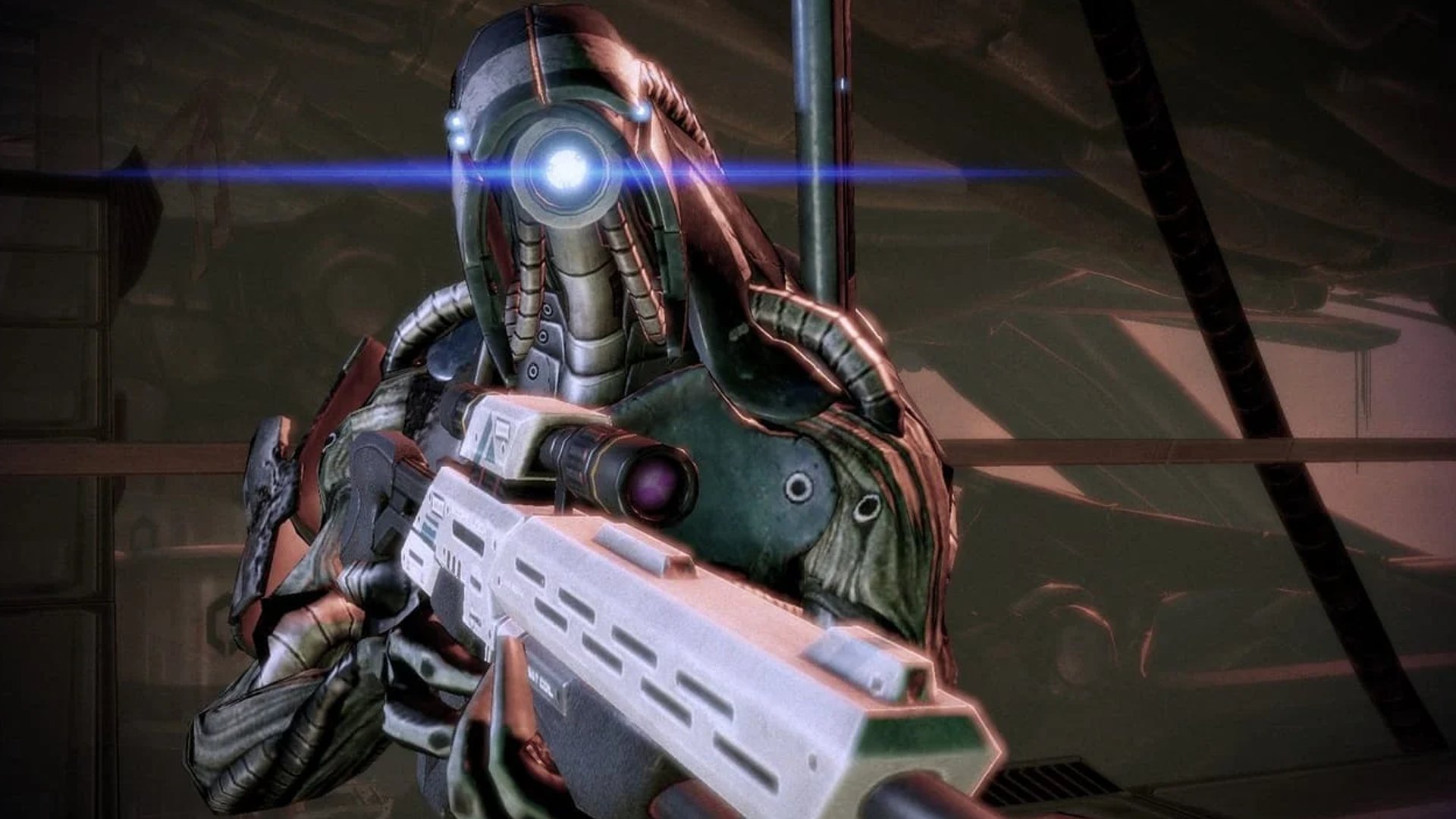
Legion
When Jesus got out of the boat, a man with an impure spirit came from the tombs to meet him. This man lived in the tombs, and no one could bind him anymore, not even with a chain. For he had often been chained hand and foot, but he tore the chains apart and broke the irons on his feet. No one was strong enough to subdue him. Night and day among the tombs and in the hills, he would cry out and cut himself with stones.When he saw Jesus from a distance, he ran and fell on his knees in front of him. He shouted at the top of his voice, “What do you want with me, Jesus, Son of the Most High God? In God’s name don’t torture me!” For Jesus had said to him, “Come out of this man, you impure spirit!”
Then Jesus asked him, “What is your name?”
“My name is Legion,” he replied, “for we are many.”
Mark 5:2-9
If the Übermensch rejects the meaning of life, while the Redeemer hopes to preserve that life by grabbing control, is there a way to reconcile the two? Theology and ancient history provide some insight that attempts to show how these divisions can not only coexist but feed off each other through a moral framework. This framework is what provides us salvation in the eyes of God, and through sacrifice, to some Christians, we can be saved.
The most prominent example is the use of the "messiah" in Abrahamic theology. Originating in Judaism, the messiah is seen as a savior, often a king or high priest, anointed with the title that would bring their chosen people through times of tribulation. Most of their actions are predetermined, such as the unification of the tribes of Israel, the rebuilding of the Temple of Jerusalem, and the declaration of a savior to come. Messiahs in theology are an important part of not only religious dogma but historically, titles bestowed on important individuals.
Mass Effect is filled with important individuals. While the most important character, Commander Shepard, will be discussed next time, there is at least one character in the game that can easily be given the messiah title for their actions, the robotic AI known as Legion. Legion, aptly named from the book of Mark in the New Testament, is an AI platform known as a Geth. Geth, meaning "to serve" in the language of their creators, the Quarians, are advanced AI created over 200 years before the trilogy begins. What happens between the Quarians and the Geth becomes the primary theme for the Mass Effect trilogy: the conflict of organic and synthetic life.
Shepard's relationship with the Geth arguably provides the players with one of the most complex motivations for an antagonist force of all time. In the first game, the Geth provide the bulk of the general “grunts” throughout the main story, allying themselves with Saren and the Reaper Sovereign in attacking parts of the galaxy to guarantee the Reaper's success.
The Geth are a cautionary tale for AI intelligence if you are to believe the Quarians. Fan favorite character Tali describes the war that the Quarians lost when their creations rebelled against them, talking about how her people were massacred as they underestimated the intelligence and tactical skill of the Geth platforms they created. It is a common sci-fi cliché recycled from Isaac Asimov’s I, Robot to the Wachowskis' Martix trilogy, and to see a similar fate play out in Mass Effect is not surprising.
What is unique, however, is how the trilogy utilizes the Geth through Legion. First seen in a mission towards the end of Mass Effect 2, he seemingly helps Commander Shepard and their crew throughout their investigations of a derelict reaper. If brought on board and re-activated, we learn that Legion is a singular platform of the Geth consensus, a cluster of 1183 individual Geth in one body. It wishes to fight the “heretics” and the “Old Machines," referring to the previous antagonistic Geth under the thrall of the Reapers. This surprises Shepard, who presumed Legion, as an AI, would be aligned with the Reapers because of their synthetic kinship.
Historically, this division can be a reference to a movement during the 1st century, the Jewish Zealot movement that hoped to purge Jerusalem and the kingdom of Judea from Roman control. The movement culminated in a series of conflicts known as the Great Revolt, where Jews would be in open rebellion against the Roman Empire before it was quelled by 73 CE. Years prior, Jewish Zealots would be divided on how to combat the Romans, some pushing for open rebellion, others waiting for a messiah to bring forth their destruction.
It is through this that much of the context of the Gospels is framed. Historians are still unsure if Jesus even existed, but they acknowledge that his role in the New Testament serves as a backdrop to this Great Conflict between the Jews and the Romans. With this, the conversations with Legion take on greater weight; their own internal struggle for their future becomes a fight for survival against a synthetic religious war.
The misconceptions of the Geth and their alien perceptions of the galaxy around them are perfect fodder for Shepard to see their perspective. The Geth consensus and Legion, at first, seem wholly logical and mathematical. Their discussions about the Sovereign, known as Nazara (an ancient term referring to Nazareth, the birthplace of Jesus, and also a reference to Nazarite, an Israelite who is in the service of God found in the Old Testament), the promises of salvation, the speed of their consensus process—even their discussions about the Quarians, their creators - add insight into the faceless mobs of enemies the player has fought for two games.
A major theme with the Geth is their growing understanding of their creators. One poignant moment in Mass Effect 2 highlights the changing relationship between the two races, where a recording hears a Geth ask if they have a soul. The importance of the soul is rampant in theological texts, and per Legion, it was the first time the Quarians became afraid of the Geth questioning their place. While this theme comes into play more with Shepard’s ultimate choice, for Legion, it is a significant point as it represents the changing perspectives of their creators. The Geth gain an understanding of their position in Quarian society that will ultimately lead them towards new messiahs in the Old Machines.
Their conflict with the Heretics, the Geth loyal to the Reapers, is also important because it leads to an ethical problem regarding submission to ideology. Much like the Zealots of old, the Geth Heretics hope to destroy outsiders from their collective consensus by implementing a virus that rewrites their thinking. Shepard is offered a choice of destroying the Geth or using the virus on the Heretics, either brainwashing or committing genocide over a specific point of view.
The position of Shepard in all of this is significant. Shepard, in the eyes of the Geth, is an important figure in their consensus. The atypical non-answer of "no data available" as to why Legion holds onto a piece of Shepard’s armor, for example, hints at him being something more. True, the armor motif was originally just a cool image for the teaser trailer, but it carries heavier weight when Legion asks Shepard to provide an outsider’s perspective against the Heretics. Legion and its Geth see Shepard as their Messiah.
By the third game, the fighting with the Geth has come to a head. The Quarians, long since planning to retake their homeworld Rannoch after being driven from it by the Geth, wage war as the Reapers begin to return. Much like the Hebrews fighting for the Promised Land, the Quarians are pigeonholed into the same role as the Geth; ironically, their own brand of Zealots fighting for their cause. Much like the Zealots of the 1st century, only a total victory or death will see the Quarians satisfied.
Yet, the truth is much more complicated, as Shepard learns when they interface into the Geth consensus. Shepard sees the gradual birth of the Geth as a thinking intelligence, the fact that some Quarians wished to protect them from destruction, and the mercy of not committing genocide on the Quarians as they retreated. The Geth, in their earliest moments, logically process their decisions to simply remain isolationists to the greater galaxy. That is, until the onset of Nazara and the Geth Heretics.
Ironically, the Geth in Mass Effect 3 are not Heretics per se, although the presence of a Reaper controlling their actions transforms many of them to fight against Shepard. Many of them become enticed by something they cannot fully comprehend, achieving true intelligence like the Old Machines thanks to the Reaper code. The Geth Heretics worshipping the Reapers like Gods can also be a reference to the false idolatry found in the Bible, but it takes on another form thanks to Legion. See, Legion wishes to also preserve his people, but feels the upgrades by the Reapers, without their control, is the only way to do so.
The climax of the Quarian and Geth conflict is a massive moment in Mass Effect 3. After destroying a Reaper, the Geth and Quarians are ready to continue their fight, with Tali and Legion, provided they have survived to this point, arguing why each side deserves a right to live. The outcome is heavily dependent on many factors found in Mass Effect 2 and 3, with two of the endings leading to the destruction of the Quarians or the Geth, while another wipes both out completely. Much like Legion’s loyalty mission, the choice of genocide once more can be selected.
The best outcome, however, is when Shepard can stand down the Quarians while Legion uploads the Reaper code. Part of the reason this is the best outcome is the symbolic significance it has for Shepard and their arc for the climax of the trilogy. For Legion, however, it transitions him into the messianic role he was playing throughout the game. Legion serves the role of the messiah for the Geth as the bridge between an AI and sentient intelligence.
The growth of Christianity and the New Testament, born out of Jewish traditions and the Old Testament, also treat their messiahs differently in theology. Jesus, as a figure, was purposefully framed as the Son of God, and that his death and rebirth, rising from the dead three days later to ascend to heaven, was an act of benevolent salvation to all Christians. For the Catholic church and many Christians, the messiah is a physical representation of God on Earth—Christ himself, the future king who ushers in the Messianic Age.
Since each Abrahamic religion has its own interpretation of a messiah, the final transition between the Old and New Testaments fits squarely into the hands of Christian theology. For the Geth, their messiahs were external throughout the trilogy. The Old Machines, their herald Nazara, The Creators in the Quarians, Shepard - each of them have become messianic figures to the Geth, forming different streams of belief. Each of them in a way represents the Old Testament, the Jewish tradition of anointed kings heralding important change.
Legion, by contrast, becomes the son of God - Christ the messiah in the Catholic sense. By willingly sacrificing himself to allow his soul to spread across all Geth, Legion makes the same choice as Jesus without hesitation towards their death, knowing the ultimate reward is the salvation they now bestow upon their people. They take the words of the Old Machines and bring new perspectives, and new hope to the Geth, offering them true sentience and, more importantly, salvation. The culmination of this is a scene of hope for the Geth and the Quarians, them both coming to an understanding over the sacrifice of the life that was given to them. Tali sorrowfully answers Legion's inquiry, that he does have a soul, and in his final moments, he processes what he always knew for himself before ascending.
The best ending for the Geth and Quarians is also the best ending for the character arc of Legion. Like many AI characters before him, the quest for understanding the world goes through turns and trials that come into conflict with the chaos of organic life. Yet, the outcome of uncovering that truth is more than just an unshackled AI; it is a theological framework that further elevates a possible fate for synthetic life.
Legion and the Geth serve one more purpose: proof that the Reapers, for all their complex motivations, can also be wrong in their presumptions. Throughout the trilogy, the Reapers see themselves as the Gods of the Galaxy, the salvation for all organics, and the vengeful hammer for their sins, all because of the cycle of violence that is inevitable between organic and synthetic life. Yet the actions of a single being can change the destiny of all mankind. The question, then, is will that single being also be a messiah for organic life…
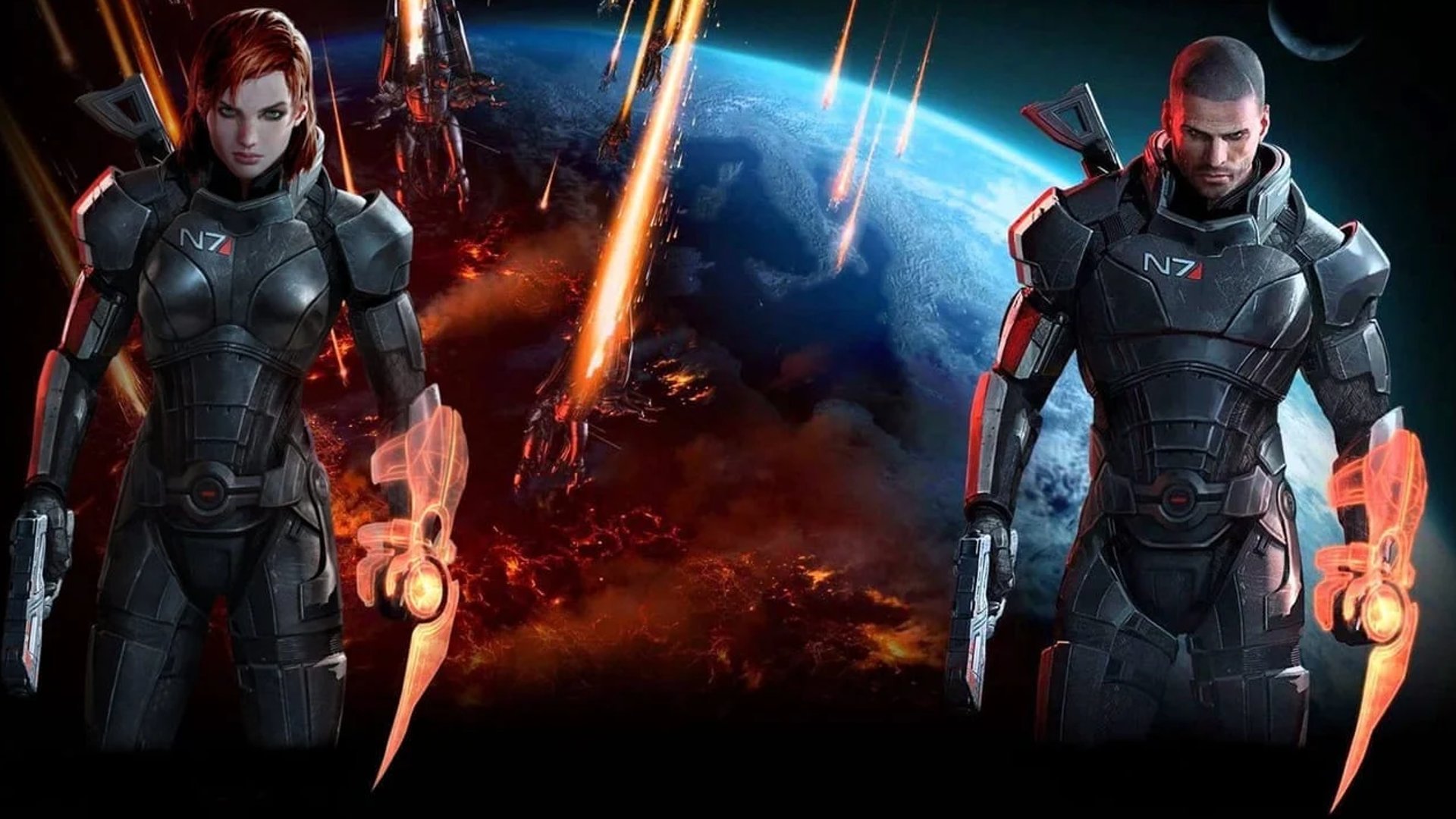
Commander Shepard
And when he opened the seventh seal, there followed a silence in heaven about the space of half an hour. And I saw the seven angels that stand before God; and there were given unto them seven trumpets. And another angel came and stood over the altar, having a golden censer; and there was given unto him much incense, that he should add it unto the prayers of all the saints upon the golden altar which was before the throne. And the smoke of the incense, with the prayers of the saints, went up before God out of the angel's hand. And the angel taketh the censer; and he filled it with the fire of the altar and cast it upon the earth: and there followed thunders, and voices, and lightnings, and an earthquake. And the seven angels that had the seven trumpets prepared themselves to sound. And the first sounded, and there followed hail and fire, mingled with blood, and they were cast upon the earth.Revelation 8: 1-7
When Commander Shepard was named for the original Mass Effect, it was a tribute to astronaut Alan Shepard for being one of the first people ever to fly in Space. Shepard was symbolic for BioWare in 2007 for the role he could play in the space opera they were creating, but Shepard’s name also serves as a second meaning: a biblical one.
In the final scene of Mass Effect, a child asks their grandparent while gazing at the stars on a distant planet to “tell them another story about The Shepard.” It is an important moment because it reframes Shepard completely into their biblical role, whatever that role may be. Shepard is no longer just a Commander, a human, or even a reference to an astronaut. Shepard is now an important figure in the Galaxy’s theology, and this in turn focuses on Shepard’s role as a character throughout the trilogy.
So how do we define Shepard, when their function as a character is an avatar for the player? Since Mass Effect is an RPG, the game itself is wholly defined by several hallmarks of the genre. All the customizable aspects of Shepard - their backstory, class, and gender - combine with the player's moral choices in-game. It is a hallmark of an RPG to give the player agency for their actions. What sets Shepard apart, however, is how the game purposefully takes agency away from the player at times in service to the main plot.
Shepard is a hybrid character, a sort of "new breed" of RPG protagonist that has a clearly defined role and at times personality, with many aspects that are customizable by the player. In between determined characters such as Geralt and blank slates like the Dragonborn, BioWare has mastered this kind of character since Baldur’s Gate.
In fact, much of the BioWare catalog is filled with hybrid characters. The cliched "chosen one" motif that BioWare typically employs rings true in many games they have developed, but BioWare was always clever in their presentation. Mass Effect is no different, as what makes the narrative here significant is how this gives the developers the ability to weave thematic elements into the gameplay and narrative.
The death of Shepard in Mass Effect 2 is emblematic of this meshing of theme and mechanic. While obviously an overt reference to the story of Lazarus and the Resurrection of Jesus, it also services the narrative structure of the game, allowing the player to "respec" their character to begin the game at level one. It ties these elements together on a surface level, but thematically, the rebirth of Shepard adds a new dimension to the character that holds out to the trilogy's climax.
Shepard’s resurrection is often seen as the beginning of the series’ biblical themes, but Mass Effect was already tied to theology in subtle ways through the Reapers themselves. Shepard and the Reapers are explicitly linked, not only in a protagonist/antagonist sense but also through the roles they play in theology. The starkest example is on Virmire, with the conversation Shepard has with Sovereign, the Reaper vanguard. Sovereign is the first hint of the Reapers role in the trilogy: the bringers of the apocalypse, the angels of God ushering in a grand change.
The Apocalypse is more than just a reference to the end times. In theology, it serves as a form of literature that often uses symbolism to describe the death and rebirth of the world. The key point is not the destruction of the world, but the aftermath. See, apocalyptic literature is often a prophetic metaphor for what becomes the next “revelation,” the reveal of truth through communication with a divine figure. It then serves as a tale of God's wrath, but also rewards the faithful with paradise, a new Utopia.
Take, for example, the story of Noah and the Flood in the Old Testament. Many theologians view this as an apocalyptic story, where God instructs Noah to build an ark as he reverses his own creation of the world. Noah, along with his family and other animals, survive the great flood and repopulate the world, leading to a rebirth of man and a new creation - a utopian vision that has washed away the sins of the world.
Sovereign, of course, is the first bringer of truth to Shepard. It states “we impose order on the chaos of organic evolution. You exist because we allow it, and you will end, because we demand it.” It is the first hint at their grander plan, the harvest of organic life for a purpose that is beyond comprehension to organics. Sovereign admits they have no beginning, no end, and that their motives are above the means of mortality. Sovereign, and the Reapers in general, are the angels of God, heralding the apocalypse by God's own design.
So how does Shepard fit into this? As the player, their job is to stop the apocalypse, but as a hybrid character, the course of action to do so is undetermined. This adds another dimension to the game by tying the player's journey into every choice that can be made to service this thematic arc. Shepard is a leader, a charismatic force of personality, and the only character who has a hand in the outcome of all these character and thematic elements.
In all three previous articles, the actions of Garrus, Mordin, and Legion are tied explicitly to Shepard and the choices of the player. It is Shepard that can encourage or discourage Garrus’ personal path to redemption. Shepard can deny Mordin's agency. Shepard can allow Legion to become a messiah. It is the player's choices through Shepard that ultimately decide the thematic narrative of the Mass Effect trilogy. This is expected for an RPG; the main character is after all the only character with full-blown agency. Choices have consequences in Mass Effect, a hallmark of most role-playing games. While many criticize the lack of their choices impact in the trilogy, on the thematic level, these choices give Shepard a deeper understanding of the game's themes that become the exclamation points of Shepard’s character arc.
Legion's loyalty mission in Mass Effect 2 is a good example of this. Legion, once again viewing Shepard as a messianic figure, asks Shepard to make a tough ethical decision, to either destroy a cluster of Geth Heretics possessing a virus designed to brainwash other Geth or to use the virus on the heretics themselves, brainwashing them in the process. The ethical question here falls upon how Shepard sees the situation. Are they willing to destroy these Heretics because of their beliefs? Does Shepard respect the idea that the Geth are more than just synthetics? It is a choice where the mortality is extremely fluid, and for Shepard, it can be a choice that is difficult but necessary to make.
All the missions in the trilogy offer several difficult and ethical choices that not only define the characters around Shepard, but the player's view of Shepard and the world. How willing is Shepard to genocide a species? How quick is he to take an advantage against insurmountable odds? The inclusion of paragon and renegade interrupts theadd reactive actions as well, allowing Shepard to become a pro-active character in the moment-by-moment choices made in-game.
This dictates the type of Shepard we see, but what ties this into the game’s biblical themes is the actions Shepard must take when the Reapers come in full force. Think of each choice as another revelation, a gaining of knowledge or universal truth into the psyche of the player's character. Shepard must wage a war against the encroaching apocalypse, using every revelation to fight back against them. It is a fight that Shepard knows is impossible to win, and the toll of that begins to rise as the game uses its cinematic prowess to showcase the devastation.
The opening of Mass Effect 3 is extremely effective in setting the game's tone. Like the Book of Revelation describes, we hear the thundering trumpets, intermingled with beams of light and balls of fire from the sky. The end times have arrived in Mass Effect 3, and God’s angels have begun the harvest to bring forth a new world.
The question of course, though, is who is God in this case? If the Reapers are his angels, then there are only two possibilities as to who God can be: the Leviathan or the Catalyst. The Leviathan was the original “apex” race, a creature who enthralled other races and worshipped as a God across the galaxy. Its creation of the Catalyst was due to hubris, believing that the Reapers would solve for them the unexplained conflict between organic and synthetic life.
The Catalyst is the direct consciousness of the Reapers, the original AI by the Leviathan to solve the problem. As an AI, the Catalyst is beholden to the cold machine logic of its programming, but its decision to rebel against Leviathan follows a very similar path as not only the Geth and the Quarians, but of rebellion against God by his followers, or even more boldly, Lucifer from Paradise Lost.
If the Leviathans are God, then they are the Gods of Paganism and ancient Religious Cults. Pro-active, vengeful, covetous beings who are all-knowing and all-powerful, and who disappear from memory when the Catalyst usurps them. In Abrahamic traditions, the Catalyst represents the monotheistic belief in God the beginning and end, the Alpha and Omega—the title given to Christ in Revelation.
The cycles that the Reapers force throughout the Galaxy is a reconstruction of multiple apocalyptic events, with the Catalyst ultimately playing God and the Reapers their literal Harbingers. The Catalyst, as projected by the Reapers, is seemingly all-knowing, its methods alien to the organic mind. The cycle is not just an apocalypse, but a continuous rebirth of the Galaxy while the Reapers preserve the knowledge and ascend to the heavens. A Utopia that is preordained by design.
Shepard’s Role, then, is to serve the same role as all the varying philosophies seen at this point. Does humanity, and by extension, organic life, have free will? The Catalyst argues that the order it imposes pushes back against the Chaos of free will. Free will is an illusion to the Catalyst, especially when you consider how the Galaxy itself is specifically set up to ensure the cycle of apocalypse continues.
Yet Shepard becomes the anomaly, the one X factor in the Catalysts’ plans. After the final confrontation with The Illusive Man, the death of Admiral Anderson, and Shepard’s "ascension" into the heavens of the Citadel, the Catalyst gives Shepard a profound choice: what is the future of organic life?
The endings of Mass Effect 3 are often criticized for being simultaneously convoluted yet incredibly vague at the same time. From a mechanical sense, yes, they are somewhat separate from the main game, and the consequence, upon release at least, was not fully seen, only implied. The extended cut, however, has changed that. In the new light there, we see more closure and a greater glimpse of what the three primary endings to the game really mean because of Shepard’s choice. Arguments of the game's ending not providing proper or logical closure to the trilogy, I would argue, miss the mark of the problems with the ending. If anything, the endings suffer from being too logical in their focus. From a pacing sense, they fail because of the player expectation being different than BioWare’s thematic vision.
In a philosophical sense, the final choice is not only a perfect ending but one that wraps up the biblical themes. When Leviathan created the Catalyst, it tasked it to solve the problems of organic and synthetic life and to find peace for all beings in the galaxy. The Catalyst offers the same choice to Shepard; options that, depending on how Shepard may have dictated their own choices throughout the trilogy can influence the final choice here. God has bestowed the destiny of man in us, and through this final revelation, Shepard must dictate the future of the Galaxy.
In effect, the three main endings to Mass Effect 3 - control, destroy, and synthesis - have been staring at us all throughout the game. All three endings tie into the general philosophy of the game's themes. All three endings lead to the rebirth of the Galaxy, and all three, much like many of the biblical themes, mesh well with the overall themes. The apocalypse ends, the world is born anew, and the sacrifices made by not only companions to Shepard but of Shepard’s own actions are what is rightfully remembered. The choice Shepard makes is not out of left field, it has been seeded throughout the trilogy and funneled into Shepard’s ultimate role in the franchise: becoming God in control, striving for individual freedom with destruction, or being the messiah for the entire galaxy through synthesis.
While the three primary endings fit snugly into the game's core biblical themes, the last ending, Refuse, also needs to be addressed. The refuse ending, added in the extended cut, is where the outcome leads to the next cycle of simply making the choice for themselves. Refuse as an ending is the rejection of all the choices given, and in so doing it can be analogous to those who reject God at the coming of the rapture. It is Shepard's actions that help inform the next cycle, who made the decision instead of Shepard. It is the next cycle that experiences its own rebirth through Shepard's "revelation" of the Reapers.
For the other three endings, we see how their core themes are portrayed positively and negatively in the trilogy. The fall or redemption of Saren is a failed attempt at synthesis, for example, as is the outcome of the Overlord DLC in Mass Effect 2. The Illusive Man’s desire to control the galaxy for humanity’s bidding leads to the fall of himself and his pro-human organization Cerberus. The choice by Shepard to destroy the Rachni, effectively leading to the Genocide of their species, is another example of the cost involved in the games' final choice.
More positively, we see how all three endings tie into the arcs of Shepard’s choices with other characters, providing their own revelations that can dictate the player's choice. For control, Garrus helps represent the positives of that choice. Garrus is controlled by Shepard, and the player's choices dictate how Garrus utilizes the skills as Shepard’s right hand. Control is Shepard’s ascension, becoming God and invoking his will above others for a greater cause, the Reapers his new right hand in proper divinity.
Destroy is often considered the "best" ending to the trilogy because it is seen as being the most "in-line" with the standard power fantasy ending. Although the best is arguable, in many ways, for those who enjoy the individuality of the game's design, it is the proper choice. Players would likely see this ending similar to Mordin - the big picture over the little one—the sacrifice of themselves to break the cycle and chart their own destiny fits entirely with a nihilistic view of the world. Shepard the Übermensch, killing God in the name of freedom and, in some cases, seeing Shepard cheat death, "overcoming" the wrath of God in the process.
Synthesis is perhaps the biggest change of all because as it is presented in the endings, it is the pure Utopia after the rapture. Legion was the prototype of Synthesis, the messiah for his people who sacrificed his life to save them. Shepard makes the same choice, sacrificing themselves so that the Galaxy can enter paradise after the apocalypse. The combination of organic and synthetic life implies a golden age, right down to positioning the AI character EDI and the Normandy pilot Joker as this utopia's new Adam and Eve.
When the stargazer asked for another tale about "The Shepard," it was requesting a revelation of their own; the truth of their existence. The end times are not death and destruction for all, of course. It is rebirth, it is ushering in change. The Shepard has become the instrument of that change, the final truth to the state of the Galaxy in the far future, regardless of which ending is chosen. It is the perfect coda to a series that often wore its references on its sleeve, but in the subtext utilized its biblical themes to provide a story of apocalyptic literature for a modern era. If nothing else, Shepard, by the games' design, becomes the centerpiece of the Galaxy’s own salvation.
I want to thank everyone who has read all four parts of these articles. To me, Mass Effect is one of the most important game franchises of all time, and the amount of symbolism, thematic elements, and even stylistic choices that can be discussed are as deep and detailed as you can get. I hope that people enjoyed this series, and if nothing else, at least made them think about the game in a different way. Happy N7 Day.
Have a tip, or want to point out something we missed? Leave a Comment or e-mail us at tips@techraptor.net
